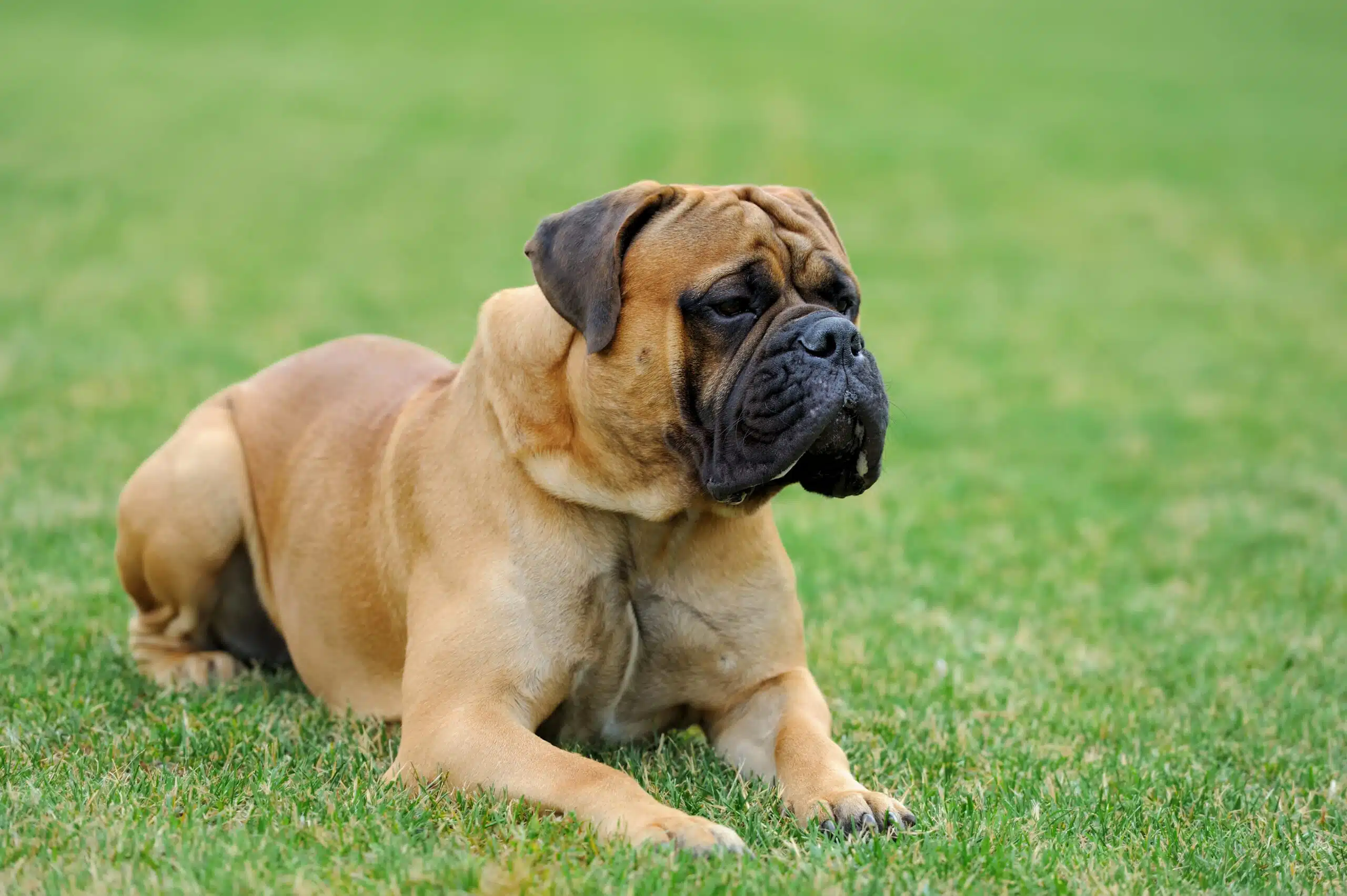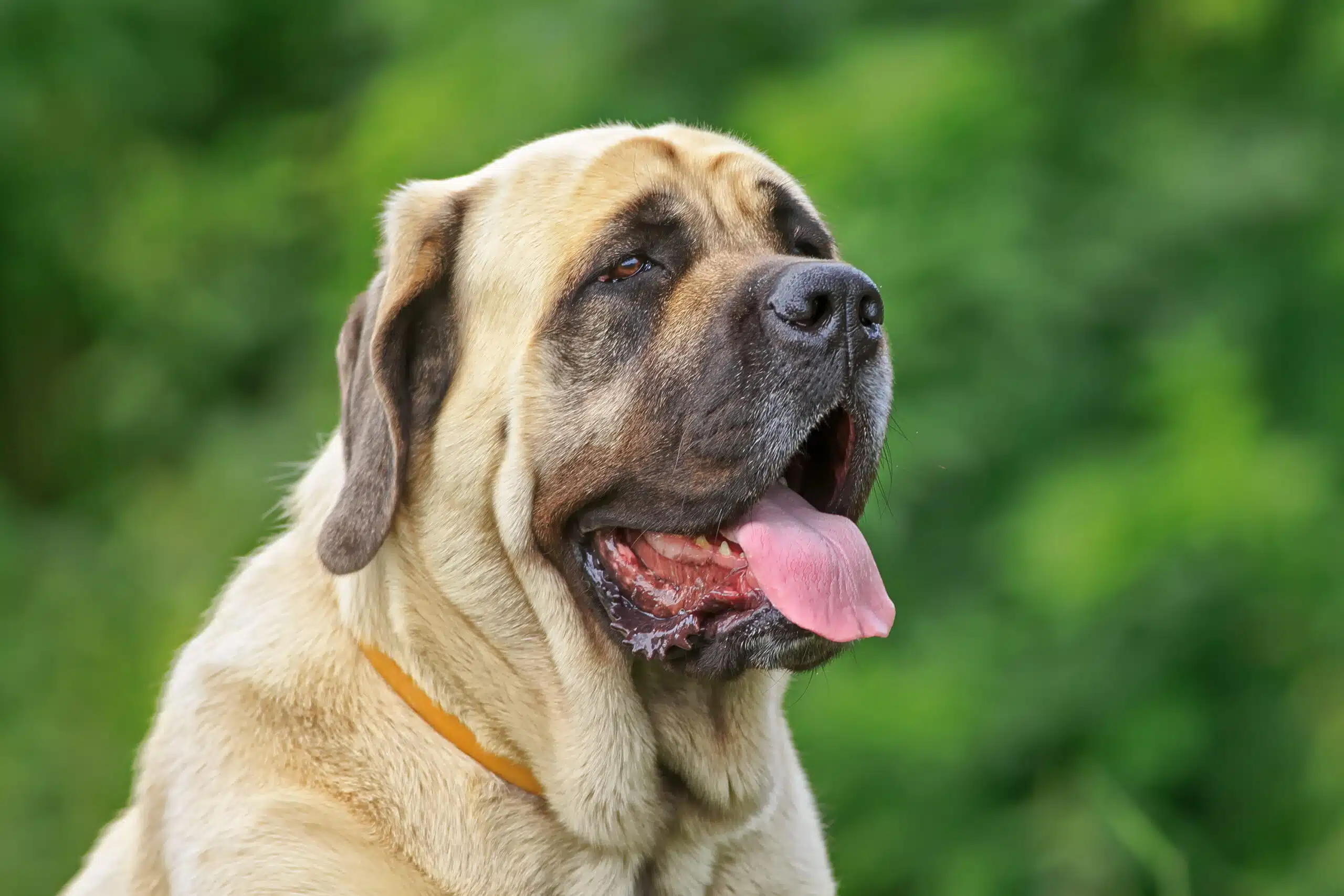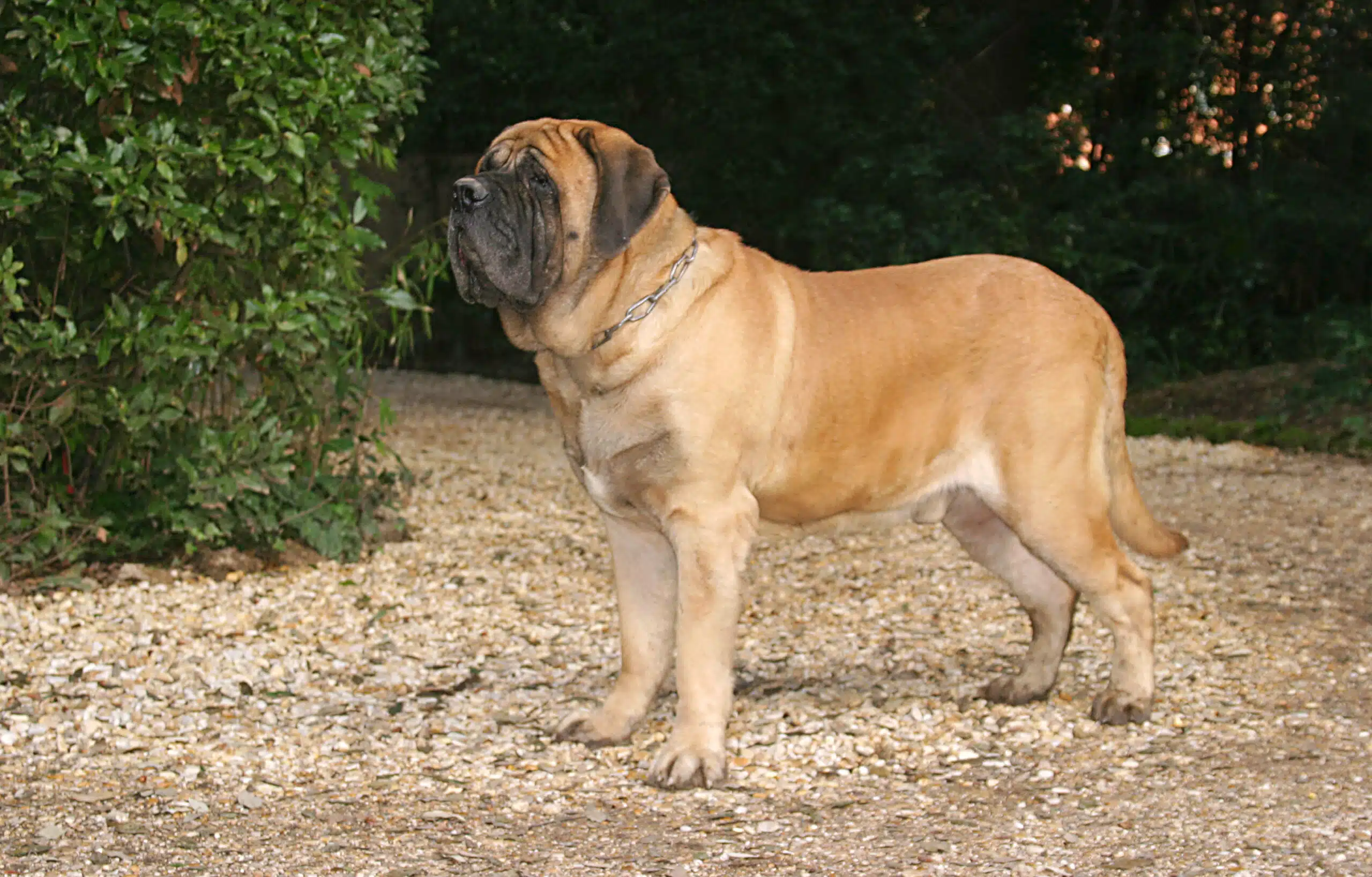Mastiff

Thousands of years ago, the Mastiff descended from Central Asian mountaineers. It’s said that its name originated from Latin words such as “massivus” (enormous) and “mastinus” (house dog). Ancient people used these ‘molossers’ for pursuits like hunting, defending property and battle. They moved through continents alongside traders and nomads coming out of Tibet or northern India; Greeks, Romans – and various other civilizations – all had mastiffs at their disposal when they went to war.
Don’t be deceived by the Mastiff’s appearance; this gentle giant may look intimidating, but he is in fact a peaceful soul. His massive size and sleek coat with a distinctive black-masked face are enough to fend off any troublemakers that approach his family. They’re actually one of the heaviest breeds out there that can easily weigh more than 200 pounds! Loveable yet sometimes stubborn at heart, your loyal companion will always have your back when danger threatens.
Mastiffs are known as “gentle giants,” big dogs whose main weapons are their size, reputation, and instinctive understanding of what is and isn’t a threat. A well-bred, well-socialized Mastiff will protect his human family as part of his nature, without any special training beyond simply making him a well-behaved member of the family.
If you have the physical strength to handle an impressively strong canine that is likely larger than yourself, are fond of their gentle and affectionate nature despite their occasional stubbornness, and don’t mind a bit of slobber now and again – then adopting a Mastiff might be just what you’re looking for.
The Mastiff is a pleasure to live with – he’s mostly silent and won’t bark unnecessarily, plus his short coat doesn’t require too much maintenance. All you need to do is brush his fur twice a week! While there may be some drooling now or then, it can easily be remedied with simple cleaning after meals. That said, if your utmost priority requires zero slobbering-dog in the home environment, perhaps get another breed than the gentle giant Mastiff.
To cultivate the ideal temperament in a Mastiff as it matures, socialization around various people from an early age is essential. Contrary to popular belief, this process does not render him any less of a guardian; rather, it allows him to be that much more discerning and efficient when separating friend from foe. Through exposure to these different individuals – children, elders, those on wheels – he will learn how they look and act so that identifying suspicious behavior becomes easier than ever!
Mastiffs have a natural fondness for children, but due to their large size and strength, they can unintentionally terrify or injure small kids. For your safety precautions and the well-being of your children, always keep an eye on them when together with your pet. If you have toddlers in the house, it is recommended that you wait until they get older before bringing a Mastiff into your family.
- Group AKC Working
- Origin United Kingdom
- Size Giant
- Weight 120 to 230 pounds
- Coat Length Short
- Coat Type Double
- Colors Apricot,Brindle,Fawn
- Other Names English Mastiff, Old English Mastiff
- Temperament Affectionate,Alert,Cheerful,Courageous,Intelligent,Loyal,Protective





